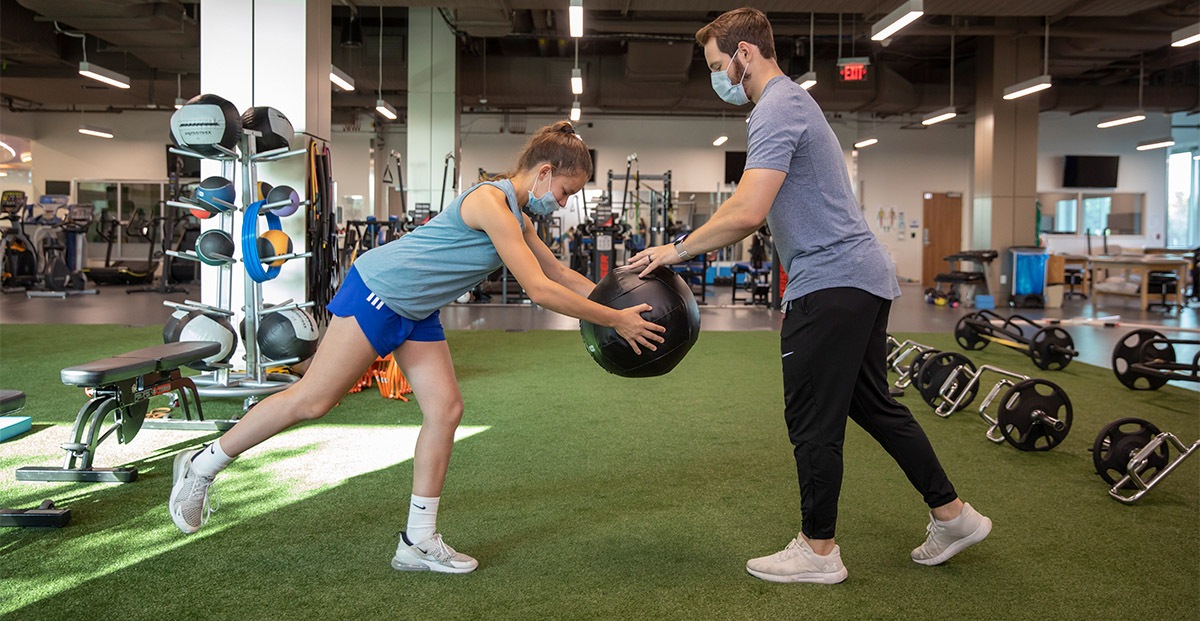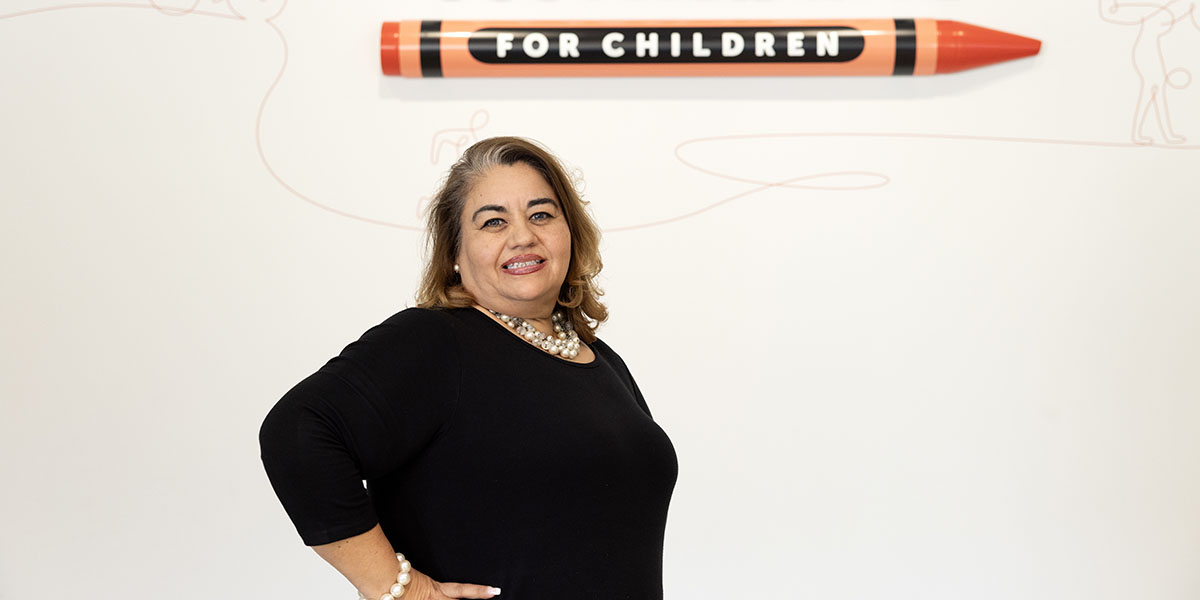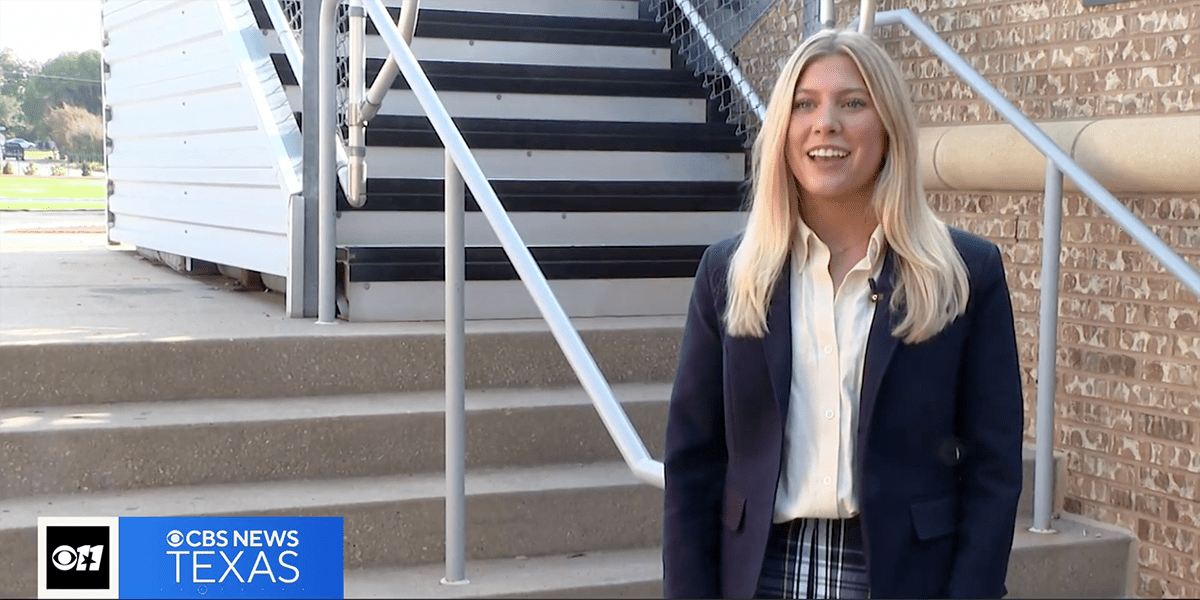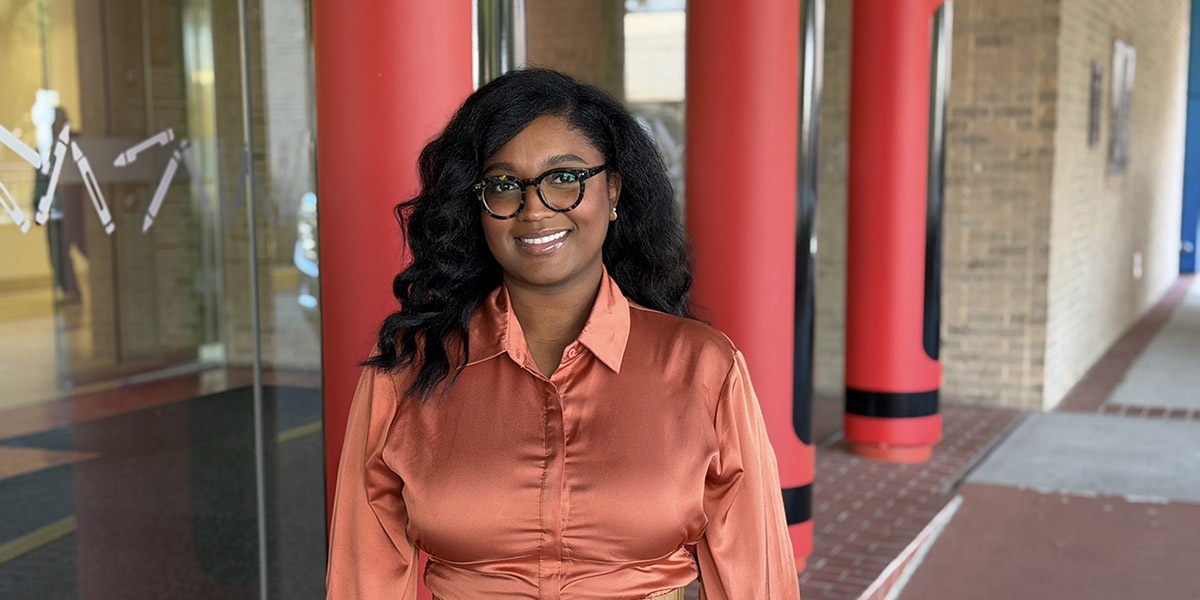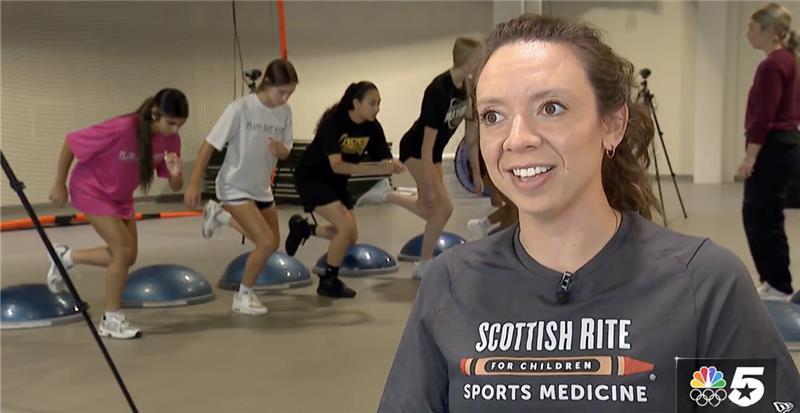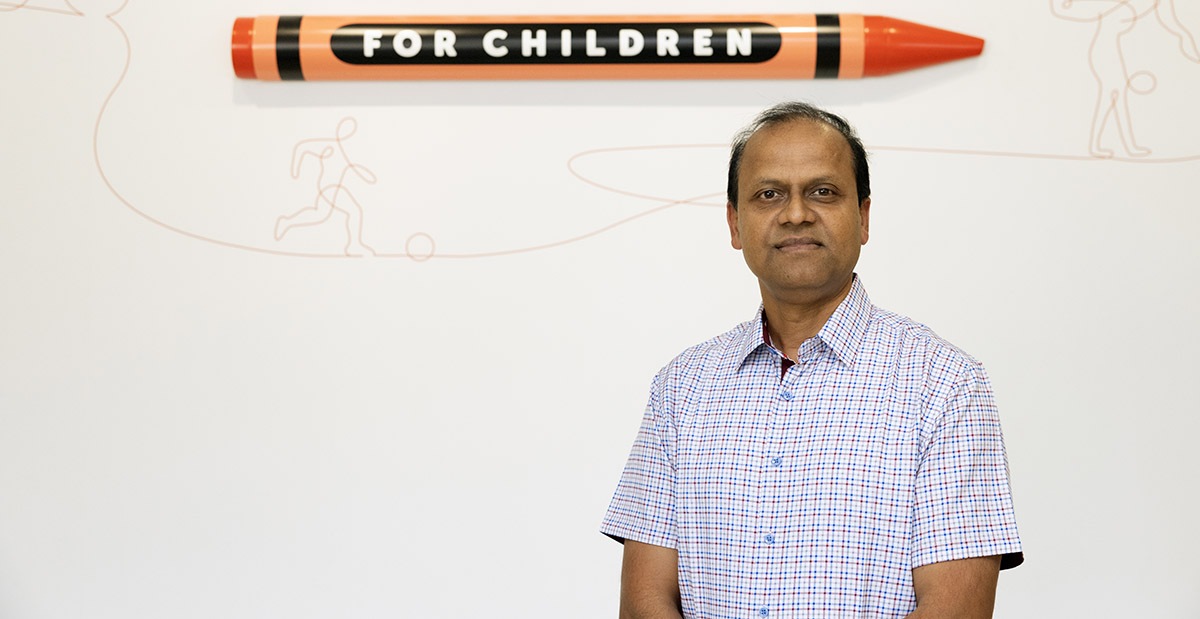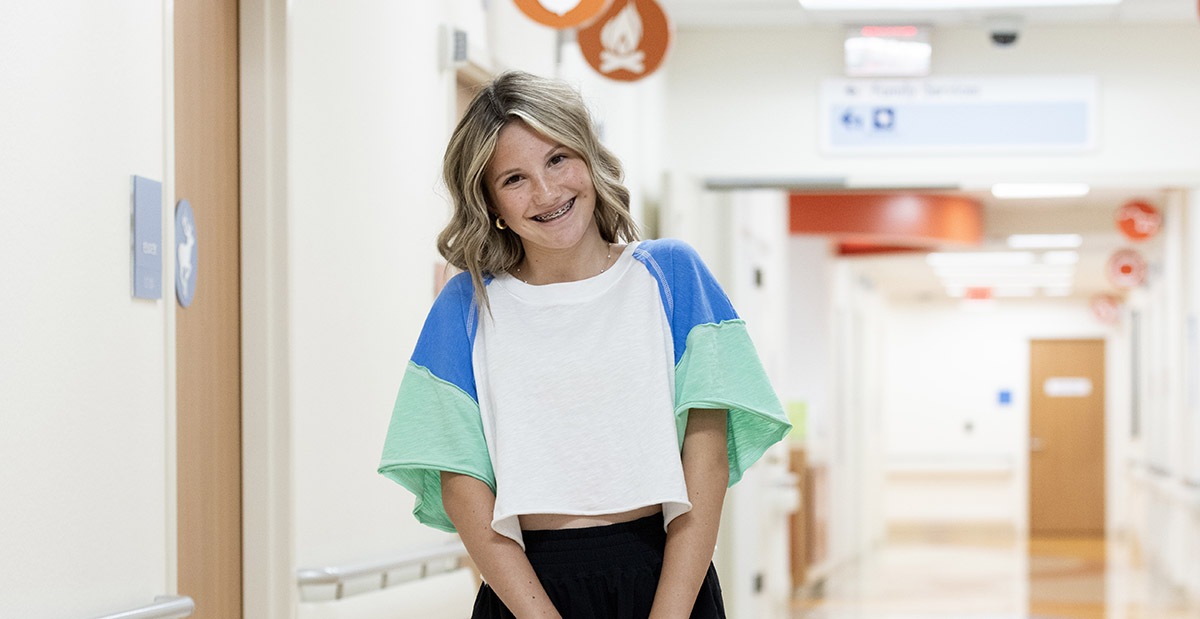Program coordinator Ian Wright, P.T., D.P.T., CSCS, USAW, TSAC-F, O.C.S., and additional Physical Therapy team members certified in strength training provide focused, intense instruction so sports medicine patients like Lillian, who has recently recovered from an ACL reconstruction surgery, can return to playing soccer.
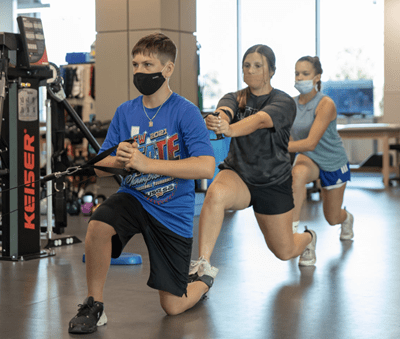
Poor movement patterns are associated with growth and increased injury risk, so an ongoing or periodic conditioning program can be important to young athletes. Training participants attend from one to three classes a week and are categorized based on any activity restrictions and individual skill level coupled with the specific demands of the individual’s sporting position.
“If I could give parents advice, I would say there’s something really remarkable when your child is doing therapy in an environment around other children,” Lillian’s mother, Debbie, says. “To do it around other kids is super, super important. Lillian realized she was not the only one.”
Wright and the team care for the unique challenges of busy student athletes and take external stressors participants face on a daily basis into consideration. “Maybe it’s a stressful midterm week or it’s out-of-season or maybe it’s a hectic game schedule coming up, our therapy staff can adapt and change the classes to fit whatever our participants are going through on and off the court,” Wright says.
The benefits to Lillian are clear to her parents and teammates. “These training classes have actually made Lillian stronger, faster and given her more confidence,” Lillian’s dad, Sergio, says. “It’s created such a good habit, and she’s able to break away with the ball so easily now.”
For information about attending the training classes, contact Therapy Services at [email protected]


